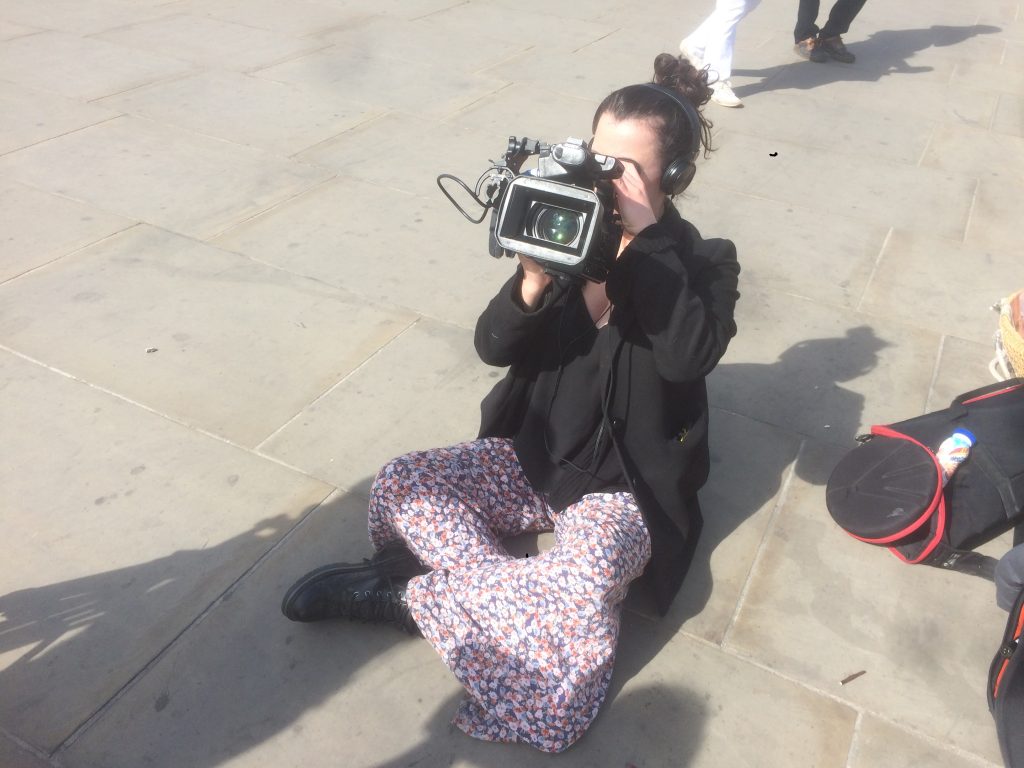Transitioning from University to the real world
University, for all its wonders, does not prepare you for the real world. It is a sad truth that I only realised once I flung my scholar’s gown to the side and bid farewell to the dreaming spires of Oxford.
In the greatest of honesty, when I left University I felt like I had been flung into an expansive, unknown space. The gravitational pull that had kept my feet firmly on the ground, with essay deadlines and examinations, had been taken away from me and I was floating in uncharted waters.
I had studied English Language and Literature which is not vocational. It is a degree that you complete because you love the realm of words, fantasy and thought. In reality, I knew I could not make an income nor a success of myself through my love of literature alone. Weighing up the options I realised that if I wanted to form a career and I loved words then the best way to go about it would be, you guessed it, journalism.
I scoured the internet applying for work experience and graduate schemes from the BBC to The Guardian. Shooting out my CV and cover letters I smugly sat there awaiting my application response with the feeling that ‘hey, I went to Oxford, I am definitely going to get something by September.’
I was so wrong.
Finding opportunities in journalism
Rejection after rejection after rejection, I became bemused by my inability to get work experience. I went to Oxford, right? Surely I was going to be flying.
The one thing I can tell you now is that, just because you went to Oxbridge or any other Russell Group University, you are no more qualified for a job than anyone else.
In fact, journalism and media is an incredibly competitive industry that cares little for your academic prowess
What it values is your passion and how willing you are to work and struggle in order to get that ‘foot in the door’ (an adage you will hear thousands of times once you start to muddle your way to that metaphorical door).
I started to rethink my tactics. I weighed up the options of doing an NCTJ course (National Course for the Training of Journalists) or accumulating unpaid work experience. The NCTJ course cost £4,600, a cost which I personally could not afford. I decided against the course for that reason alone. (If you do have the funds, however, I would seriously recommend it. If not that, the best course to do is Broadcast Journalism, if you’re interested in TV, at City University!).
Alternatively, you should also explore Oxford Scholastica’s Oxford summer school and Creative Writing summer school courses to further develop your skills and passion for writing and journalism.)
The importance of passion and dedication in journalism
Luckily, I found a six month course at Media Trust, a media company that sought to challenge nepotism and encourage diversity in the media. The course consisted of being taught how to film, edit and produce in order to complete three documentaries for London Live TV. I was given the opportunity and embraced every moment. It was, however, incredibly difficult working full-time without making any money. I had to cut-back on socializing, travelling and anything else that is leisurely, to get my foot near the mystical media door.
I presented a religious documentary as part of the course, which you can see here. In my pursuit to write for a living, I also blogged, blogged and blogged away like no tomorrow. It doesn’t matter whether people are reading it or not.
If you want to get into media, as a writer or in broadcasting, you can’t just say: ‘I LIKE WRITING,’ I LIKE TELEVISION!’ You have to prove it.
Just as you wouldn’t write the perfect essay without reading your texts, you cannot make it into media by not showing your passion for it.
When my six months was up, my Executive Producer helped me get a week’s work experience at Sky News. A year after graduating I was still not getting paid. Three days into my work experience, which I made the most of by being incredibly friendly and hard-working, I was given a Script Assistant job, a glamorized description of the role of a runner.
I grabbed it with both hands. The hours were long and unsociable. Some shifts would start at 7:30pm and end at 7:30 am. Others would begin at 4am and end at 4pm.
Embracing the challenges of a journalism career
As you can see, this is not a job for the faint-hearted. After three months of working at Sky News I immersed myself into the profession, speaking to the Heads of the Foreign and Home Desk, the editors and Directors. After networking my way around the building, I was luckily given the chance to do freelance for the Crime desk, compiling research and assisting with editing.
I have been out of University for 18 months.
Am I where I want to be?
No.
But am I on the right path?
Yes.
The reason I bore you with all the elements of my journalistic career thus far is because I cannot more ardently address how important it is that you really want to work in this field.
Many I have met have experienced the unsociable life of a journalist and have abandoned the field. It is not for those who prioritize socializing, shorter hours and holidays. If you want to learn how to become a journalist expect to work into the night, to be called up whilst on holiday to do a report on X, Y, Z and say good-bye to weekend nights out.
Saying that, it is such a rewarding job. I have met wonderful minds and fabulous journalists from Harriet Sherwood, Bidisha, Hadley Freeman, Kay Burley, Nick Ferrari – the list is endless.
The promise of the world of media is that your hard-work will pay off.
The road to success in journalism
Every person who has started off as a Script Assistant and committed to the ferocity of the media door has made it. Sarah Jane-Mee, the presenter of Sky News’ morning show ‘Sunrise,’ started from the bottom, as have countless others.
And, I can tell you now, it was worth it.
Why I became a journalist
Journalists live a life of excitement. They are continually up to date with the world, they have an appetite for curiosity and sharing, the desire to experience what those who do a 9-5 do not. It is a life of adventure. One minute you are in America reporting/writing on people’s views on Donald Trump, the next you are in Syria learning about Yazidis. One moment you are reporting on drug-dealing in East London, the next you are in Russia dissecting the treatment of the LGBTQ community.
Journalism is the best career for a creative and, for someone who is interested in adventure. I couldn’t have started in a more rewarding career.
All I would say is, please don’t go into this career with the expectation you are going to soar or that you aren’t going to have to work incredibly, incredibly hard. Leaving University is just the start of your career; a career that will, in the end, be the most worthwhile path you could have taken.

By Francesca Nicholls
Francesca studied English Literature from 2013 to 2016. Since graduating, Francesca has worked her way up through journalism internships at magazines and broadcasters. She now works as a Script Assistant at Sky News in London.





